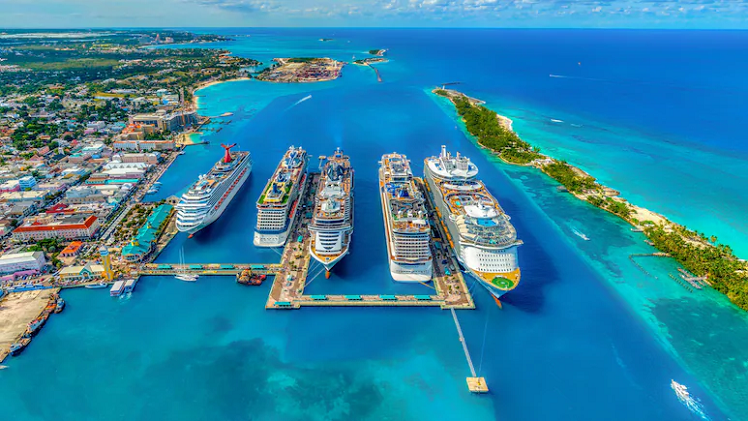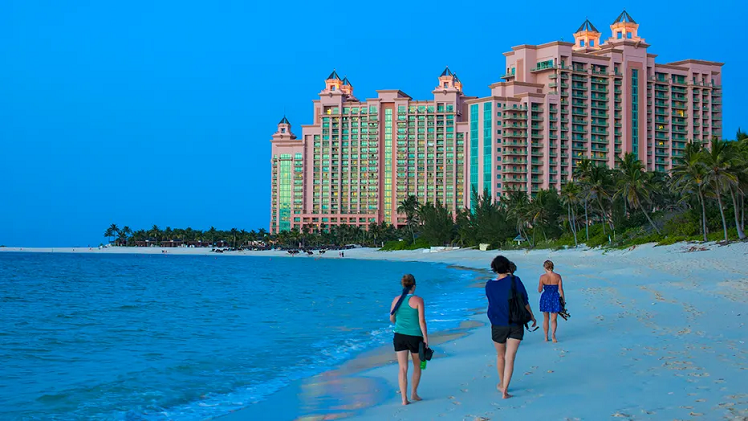Bahamas travel advisory murders
The Bahamas, a picturesque paradise known for its pristine beaches and turquoise waters, has long been a favorite destination for travelers. However, recent developments regarding violent crimes, including murders, have prompted safety warnings and heightened travel advisories. In 2024, the U.S. Department of State, along with other international agencies, has advised increased caution for visitors due to a rise in violent crime in certain areas of the Bahamas.
For prospective tourists, understanding these concerns and preparing for a safe trip is crucial. This article delves into the Bahamas’ current crime situation, the implications of travel advisories, safety precautions, and FAQs for travelers looking to stay informed.
Current Crime Situation in the Bahamas
In recent years, the Bahamas has experienced an increase in violent crimes, with murders being a significant concern. This violence, often linked to gang activities, has affected areas frequented by both locals and tourists. The U.S. Embassy in Nassau has highlighted that crimes, including robberies, burglaries, and murders, have occurred even in daylight and crowded areas.
Statistics reveal a troubling trend:
- Murders: The number of homicides has risen, with several incidents reported in Nassau, the country’s capital. Many of these crimes are believed to be retaliatory gang-related attacks.
- Theft and Assault: Tourists have reported instances of pickpocketing, armed robberies, and assaults, particularly in secluded areas or during late hours.
- Targeted Areas: High-crime zones include neighborhoods south of Shirley Street in Nassau, known locally as “Over the Hill.”
The U.S. Department of State has issued a Level 2 travel advisory for the Bahamas, urging travelers to exercise increased caution.
Understanding the Travel Advisory System
Travel advisories provide critical information about potential risks associated with international destinations. They help travelers make informed decisions and plan accordingly. Here’s a brief overview of the four advisory levels:
- Level 1: Exercise normal precautions.
- Level 2: Exercise increased caution.
- Level 3: Reconsider travel.
- Level 4: Do not travel.
The Bahamas’ current Level 2 status reflects a moderate risk level. While travel is not discouraged, vigilance and adherence to safety protocols are recommended.
Safety Precautions for Tourists
To ensure a secure and enjoyable visit, travelers to the Bahamas should take proactive steps to minimize risks. Here are some key safety tips:
Avoid High-Crime Areas
- Refrain from visiting neighborhoods south of Shirley Street, particularly “Over the Hill.”
- Stick to well-populated tourist zones and avoid venturing into unfamiliar areas alone.
Secure Accommodations
- Opt for reputable hotels or resorts with strong security measures, including surveillance cameras and gated entrances.
- Avoid staying in short-term rentals that lack professional security.
Be Cautious After Dark
- Limit outdoor activities at night, especially in less busy or poorly lit areas.
- Use reliable transportation services instead of walking.
Protect Your Belongings
- Carry only essential items and avoid displaying valuable possessions.
- Use a money belt or concealed pouch for important documents and cash.
Stay Alert in Crowded Areas
- Be aware of your surroundings in busy markets, public transportation, and tourist attractions.
- Watch for pickpockets and avoid distractions like using your phone excessively in public.
Local Authorities’ Response to Crime
The Bahamian government has recognized the impact of rising crime on tourism and has taken measures to improve safety. Law enforcement agencies have increased patrols in high-crime areas and implemented roadblocks to curb gang-related activities. Additionally, efforts to enhance community policing and strengthen partnerships with tourism stakeholders aim to reassure visitors.
Prime Minister Philip Davis has emphasized the importance of public cooperation and adherence to safety protocols during this time.
Impact of Crime on Tourism

Tourism is a cornerstone of the Bahamian economy, contributing significantly to its GDP. The rise in violent crime, however, threatens to tarnish the country’s image as a safe and idyllic destination. Travel advisories, especially from influential countries like the United States, can deter potential visitors and affect the livelihoods of local businesses reliant on tourism.
While concerns are valid, many tourists continue to visit the Bahamas without incident, provided they follow safety recommendations and remain cautious.
Travel Insurance: A Must-Have
Travel insurance is a vital tool for safeguarding your trip. With the current situation, ensure your policy includes coverage for:
- Medical Emergencies: Treatment for injuries or illnesses, including those resulting from unforeseen incidents.
- Theft and Loss: Reimbursement for stolen or lost belongings.
- Trip Cancellations: Coverage for canceling travel plans due to safety concerns or other emergencies.
Compare policies and choose one that provides comprehensive protection tailored to your needs.
Travel Tips for a Safe Visit
Below is a quick reference table summarizing essential tips for staying safe in the Bahamas:
| Safety Measure | Details |
|---|---|
| Avoid High-Crime Areas | Refrain from visiting neighborhoods south of Shirley Street in Nassau. |
| Stay in Secure Accommodations | Book hotels or resorts with robust security features. |
| Be Cautious at Night | Limit outdoor activities after dark and use reliable transportation. |
| Carry Limited Cash | Keep valuables hidden and avoid carrying large sums of money. |
| Stay Informed | Monitor travel advisories and local news for updates on safety conditions. |
(FAQ) Bahamas travel advisory murders
Q1: Is it safe to visit the Bahamas right now?
A1: The Bahamas is generally safe for tourists who follow recommended precautions. However, the recent travel advisory highlights the need for increased vigilance, particularly in Nassau and high-crime areas.
Q2: Which areas should I avoid when visiting the Bahamas?
A2: Tourists should avoid neighborhoods south of Shirley Street in Nassau, particularly the “Over the Hill” area. Stick to popular tourist zones and avoid secluded areas, especially at night.
Q3: How can I stay informed about safety updates in the Bahamas?
A3: Regularly check updates from the U.S. Department of State and the U.S. Embassy in Nassau. Enrolling in the Smart Traveler Enrollment Program (STEP) can also provide timely alerts.
Q4: Does the crime rate affect major tourist attractions?
A4: While crime can occur anywhere, popular tourist attractions typically have higher security. Exercise caution, remain vigilant, and follow safety guidelines provided by tour operators.
Q5: What should I do in case of an emergency in the Bahamas?
A5: In an emergency, contact the local police by dialing 919 or 911. Notify your country’s embassy or consulate for additional assistance.
Q6: How does travel insurance protect me during my trip?
A6: Travel insurance can cover medical emergencies, theft, and trip cancellations. It’s essential for mitigating risks, especially when traveling to destinations with elevated safety concerns.
Q7: Are all-inclusive resorts safe in the Bahamas?
A7: All-inclusive resorts often have strong security measures, making them a safer option for tourists. However, it’s still important to remain cautious, avoid venturing into unsafe areas, and follow resort guidelines.
Conclusion
The Bahamas, despite its natural beauty and cultural richness, is grappling with a rise in violent crime that has prompted international travel advisories. Travelers can still enjoy the islands by staying informed, adhering to safety recommendations, and practicing vigilance. With proper planning and precautions, a visit to the Bahamas can remain a memorable experience.
Stay updated on Bahamas travel advisory murders, avoid high-crime areas, and prioritize safety to make the most of your trip to this tropical paradise.
